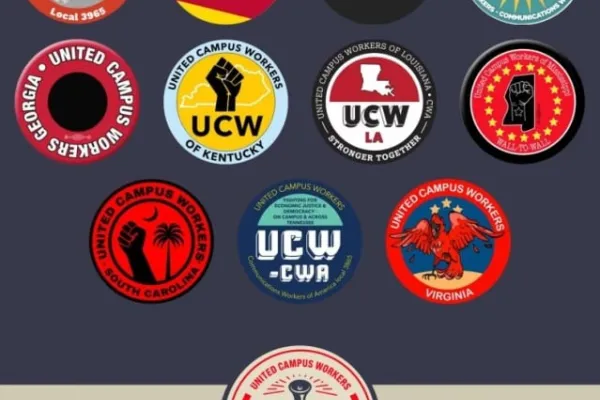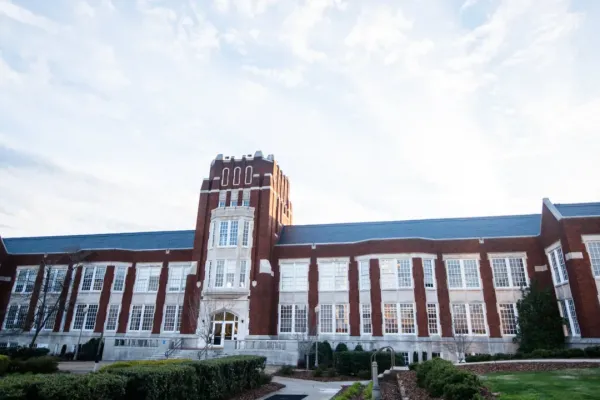JSU Organizes a Union on Campus
Today, members of United Campus Workers of Alabama–Communications Workers of America Local 3965, announce their union at Jacksonville State University. The JSU-UCW chapter is the third at the state’s public universities, joining active chapters at the University of Alabama and Auburn University. JSU-UCW aims to build on campaigns waged by UCW chapters at universities across the South that have won a $15 minimum wage for campus workers, base pay raises for lecturers and academic advisors, and the elimination of graduate student fees.
“We’re really excited about working together with colleagues here on campus, across the state, and throughout the Southeast to improve wages and working conditions for ALL campus workers,” said Lance Ingwersen, an associate professor and member of the chapter’s organizing council. “It has become increasingly clear to our members that unionization is the most effective means to achieving fairness and having our voices heard at JSU. We believe that all employees should earn a living wage, have access to basic benefits, and possess safe working conditions. That is not currently happening on our campus.”
Morale among staff and faculty at the university has fallen in recent years due to wage stagnation, increased workloads, top-down decision making, and the erosion of benefits. Record enrollments have stretched the university thin, resulting in larger class sizes and the hiring of more adjunct faculty, who are paid $2000-$2500 per three-credit hour course, well below the national average of $3500 per course. Many campus workers receive no benefits from the university, while other employees’ benefits have been eroded without their input. Most student workers on JSU’s campus earn $8.25/hour, and the university recently advertised a full-time housekeeper I position for $9.09/hour without benefits.
Long-time JSU professor, 2022 winner of the distinguished William A. Meehan Legacy Award, and member of the chapter’s organizing council, Teresa Reed, has felt this change firsthand. “I started at JSU in the mid-1990s. In the past several years, it’s become apparent that the power structure has changed. It is now much more a top-down system than it used to be, which means that input from faculty and staff—and particularly those with the least power—has been greatly curtailed,” she says. “Joining and helping grow the union is the best way to amplify many more voices on campus.”
Alabama’s designation as a “right to work” state” means that employees cannot be required to join a union. However, the right of employees to unionize is protected by the U.S. Constitution. “Even in right to work states across the South, more and more campus workers are unionizing to improve working conditions and student’s learning experiences,” says Sarah Donley, an associate professor and member of the organizing council, “and we are hopeful to do that at JSU.”
The unionization effort is also about students’ experiences at JSU. “As both a teacher and someone very dedicated to JSU, I am excited by the many ways UCW can help not only everyone who works at the university, but the students, too, by improving their learning environment,” says associate professor, organizing council member, and former faculty senate president Mike Boynton. “What better way to support our amazing students than by supporting the amazing faculty and staff who work so hard for those students?”
Members of the JSU chapter invite staff, student workers, and faculty to join their efforts to help shape the university into the best version of itself–a version that lives up to and into its values and one that has helped it earn the designation as the “friendliest campus in the South.”
***For immediate release*** August 14, 2023
Contact Name: Teresa Reed, (256) 473-5933, [email protected]
Inside Higher Ed: Lacking Collective Bargaining Rights, but Organizing Anyway (cloned)
CBS 42: Faculty at Jacksonville State University unionizes, joining Auburn and Alabama chapters (cloned)
Jax State union workers challenge university's wage practices


